Belarus has said it has been forced to host Russian nuclear weapons due to "unprecedented" Western pressure, insisting their deployment does not violate international agreements.
At the weekend Russian President Vladimir Putin announced plans to station tactical nuclear weapons in the Moscow-allied country, drawing condemnation from the West.
"Belarus is forced to respond to strengthen its own security and defence capability," the foreign ministry in Minsk said.
It said Minsk had been subjected to "unprecedented" political and economic pressure from the United States and its allies.
Belarus said it would not have control over the weapons and their deployment "in no way contradicts" the Treaty on the Non-Proliferation of Nuclear Weapons.
Minsk allowed Russia to use its territory as a launchpad for Moscow's offensive against Ukraine last year.
The two countries have since held military exercises on Belarusian territory and increased cooperation between their armies.
"Military cooperation between Belarus and Russia is carried out in strict accordance with international law," the foreign ministry said.
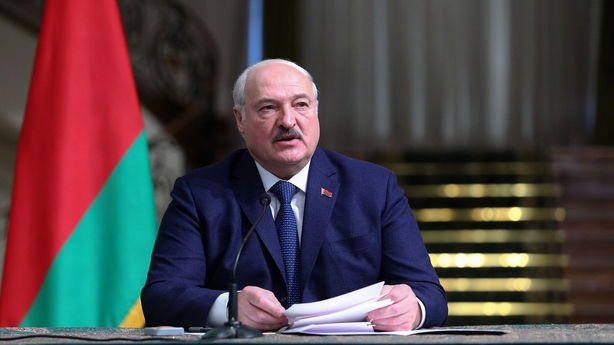
Mr Putin's plans to place nuclear weapons on the European Union's doorstep have triggered calls for new sanctions against Moscow.
With fears of a nuclear war rising since Mr Putin sent troops into Ukraine, experts believe that any Russian strike would probably involve "tactical" small-sized battlefield weapons as opposed to "strategic" high-powered long-range nuclear weapons.
Authoritarian President Alexander Lukashenko has ruled Belarus since 1994. The West has hit Minsk with multiple rounds of sanctions over its crackdown on political dissent and its role as a springboard for Moscow's assault on Ukraine.
Zelensky: Russia holding plant 'hostage'
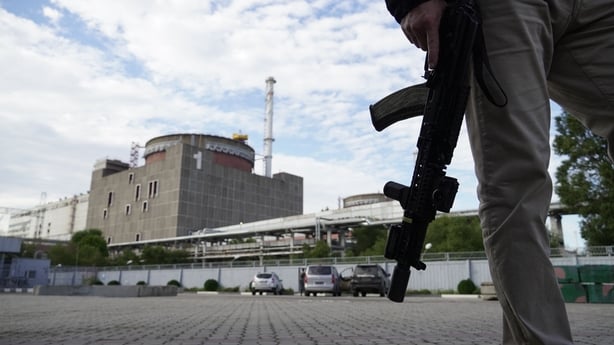
Ukraine's president has said Russian troops are holding the Zaporizhzhia nuclear plant "hostage" and its safety could not be guaranteed until they left it, while his forces shut the frontline town of Avdiivka as they planned their next move.
Russian troops have occupied the nuclear power plant, Europe's largest, since the early weeks of the invasion of Ukraine and have shown no inclination to relinquish control.
"Holding a nuclear power station hostage for more than a year - this is surely the worst thing that has ever happened in the history of European or world-wide nuclear power," President Volodymyr Zelensky said in his nightly video address.
He decried the Russian presence as "radiation blackmail".
His comments followed a meeting with Rafael Grossi, the director general of the International Atomic Energy Agency (IAEA), at the Dnipro hydroelectric power station - northeast of the Zaporizhzhia plant.
Initiatives on restoring safety and security are "doomed to failure" without a withdrawal of Russian troops from the plant, Mr Zelensky said in comments posted on the presidential website.
Russia and Ukraine routinely accuse each other of shelling the Zaporizhzhia plant. Fighting around it and worries of a water shortage and that cooling systems could lose power have raised fears of a nuclear disaster.
A team of IAEA has since September been stationed at the plant, which Kyiv has accused Moscow of using as a shield for troops and military hardware.
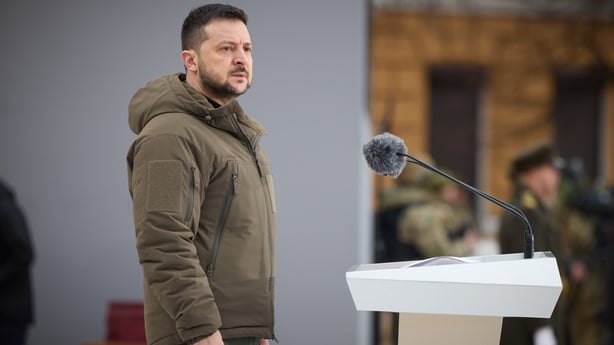
Mr Grossi has repeatedly called for a safety zone around it and is due to visit it again this week. He has tried to negotiate with both sides but said in January that brokering a deal was getting harder.
Zaporizhzhia is one of four regions Russia claimed to annex in September after referendums criticised globally as shams. Russia views the plant as its territory, which Ukraine denies.
Mr Zelensky yesterday visited the southeastern Zaporizhzhia region, the latest stage of a tour of frontline regions since a top general said Ukraine's counterattack could come soon.
Leopards reach Ukraine
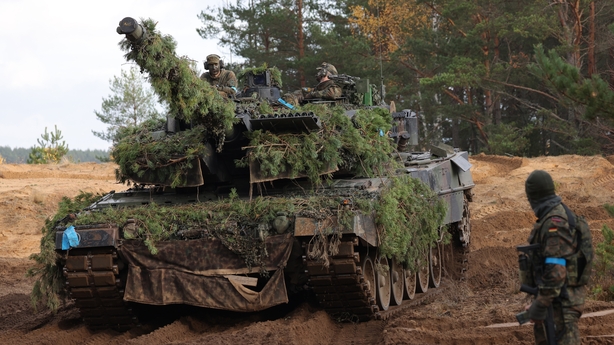
Analysts expect a Ukrainian counterattack to get underway in earnest over April and May as the weather improves and more military aid arrives, including battle tanks Leopard and Challenger.
The 18 Leopard 2 tanks, workhorse of militaries across Europe, pledged by Germany have reached Ukraine, the German Defence Ministry said.
"I'm sure that they can make a decisive contribution on the front," German Defence Minister Boris Pistorius said on Twitter.
Front lines in Ukraine have barely moved for more than four months, despite a Russian winter offensive. Ukraine's military aims to wear down Russian forces before mounting its own attack.
Russia's Wagner mercenary force, which is thought to have sustained heavy losses in eastern Ukraine, is seeking to replenish its ranks ahead of any Ukrainian counteroffensive.
A giant recruitment advertisement for the group has appeared on the facade of an office building in northeast Moscow.
It shows Wagner's logo and slogans such as "Join the winning team!" and "Together we will win", along with a picture of a masked man holding a weapon.
Avdiivka shuts
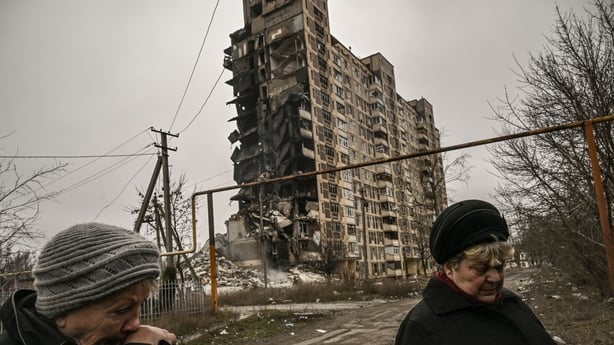
On the battlefield, Russian forces appear to be focusing on Avdiivka, 90km south of the battered mining town of Bakhmut, while a Ukrainian general said the country's forces were planning their next move.
Ukraine yesterday shut Avdiivka to civilians, with an official describing the town as a "post-apocalyptic" wasteland.
The Ukrainian military has warned that Avdiivka could become a "second Bakhmut", which has been reduced to rubble in months of fighting described by both sides as a "meat grinder". Russian forces say they are fighting street by street.
Ukrainian ground forces commander Colonel General Oleksandr Syrskyi, who said this month that a counterattack was not "far off", visited frontline troops in the east and said his forces were still repelling attacks on Bakhmut.
Meanwhile, Ukrainian authorities said air defences shot down 12 drones near Kyiv on Monday and falling debris set a non-residential site ablaze. No casualties were reported.
Russia launched a total of 15 Iranian-made Shahed drones overnight on Ukraine, with Ukrainian forces destroying 14 of them, Ukraine's military said early this morning.
"The logic of the Russians' actions is terror aimed at civilian infrastructure," Ukrainian presidential chief of staff Andriy Yermak said on Telegram about the drone attacks.
"It won't work, just like geopolitical blackmail."
These battlefield reports could not be independently verified.
Since Russian President Vladimir Putin's invasion to "demilitarise" Ukraine got bogged down in the autumn, he and other Russian officials have played up the prospect the war could escalate to involve nuclear weapons. On Saturday, he said he had struck a deal to station tactical nuclear weapons in Belarus.
Ukraine and its Western allies have denounced the plan.

